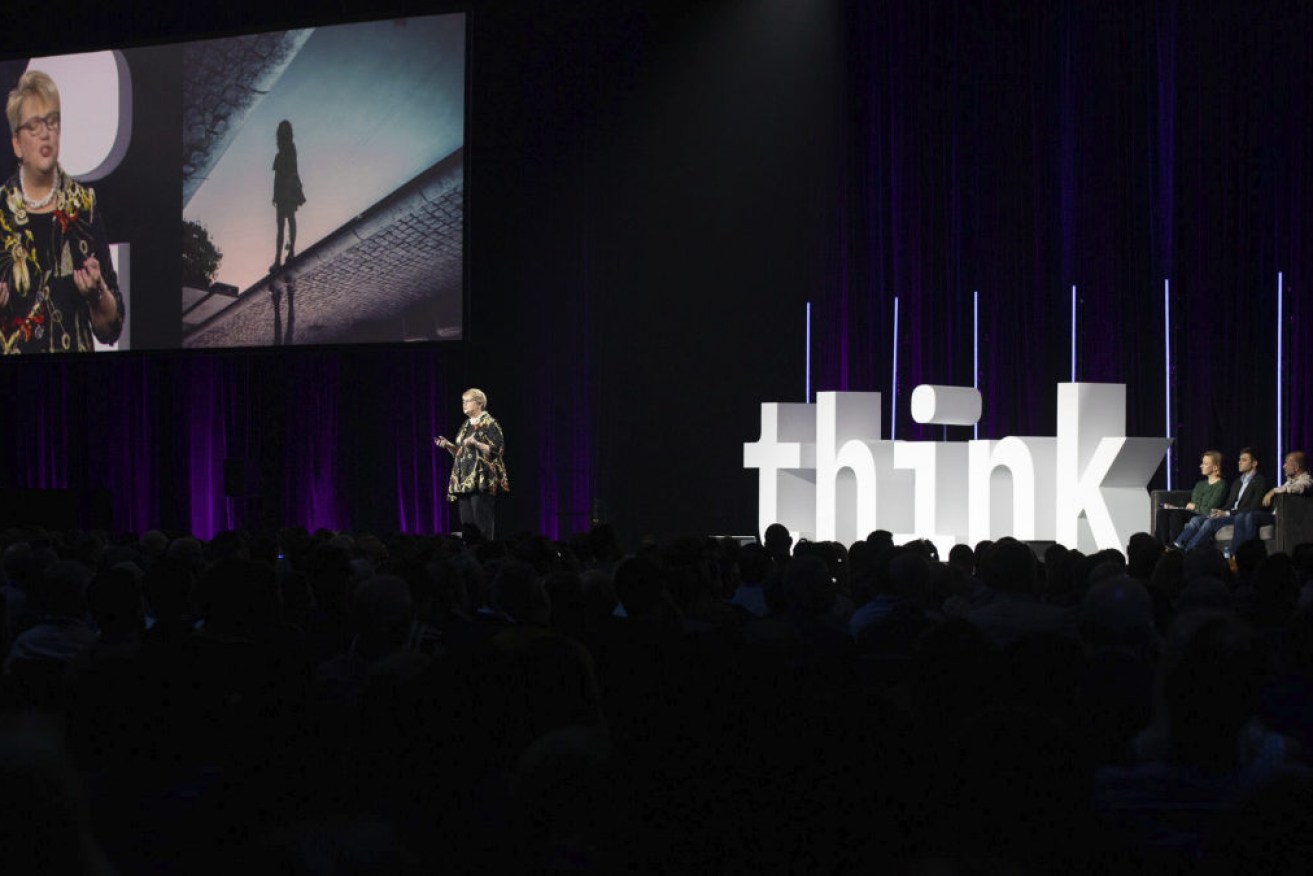‘Dear tech’: IBM is on a mission to ensure AI is used for good not evil


IBM has urged the tech sector to use technology for the good of humanity. Photo: Supplied
Tech companies have enormous power in shaping our world, yet some of Silicon Valley’s biggest names have faced backlash for sins ranging from privacy and data breaches, to a failure to clampdown on extremism.
In March, IBM released an “open letter to the industry” in the form of a video titled “Dear tech, let’s talk”.
IBM took the tech industry to task, calling for the world to “expect more from technology”.
The world needs tech companies that can apply “smart technologies at scale with purpose and expertise — not just for some of us, but for all of us”, the firm said.
On Wednesday, the global tech giant held its annual Think summit in Sydney, showcasing the mindboggling ways in which its cutting-edge technology, particularly artificial intelligence (AI), is being used to tackle some of the world’s biggest problems.
The world has reached a technological turning point in the AI revolution, IBM Vice President Seth Dobrin said.
Tech companies must embed “security and privacy by design” into their work, Dr Dobrin said, “so it’s built in and not an afterthought.”
Earlier this year, IBM showcased ‘Projector Debater’, the first AI system capable of arguing with humans on complex topics.
Project Debater works by trawling the internet and digesting information relevant content. It then uses that information to construct coherent sentences, and mount convincing arguments.
In February, the AI took on world champion debater Harish Natarajan in a 20 minute debate in front of a live audience.
AI ‘healthcare moonshot’
Healthcare is fertile ground for AI, with researchers working on using “deep learning” (AI that can automatically find patterns of interest in large, unstructured, noisy data) to develop “precision healthcare” treatments that are customised to a patient’s specific condition.
The goal is to one day render the painful “trial and error” approach of traditional medicine obsolete.
Stefan Harrer is researcher at IBM’s Melbourne development lab.
He describes his team’s mission as a “healthcare moonshoot”.
Researchers at the lab, in collaboration with neuroscientists from the University of Melbourne, have developed an AI that can track and pinpoint when an epilepsy patient is about to have a seizure, with the ultimate aim of catching it in its tracks.
“Ultimately we want to be able to use and devlop technology to improve peoples’ lives,” Dr Harrer said.
“We want to build tech that can help improve the lives of people that suffer from a variety of diseases.
“That requires that we do cutting-edge research and develop the tech and think hard about how to translate it into trustworthy and impactful solutions.”
AI has reached a “turning point that’s similar to some of the biggest industrial revolutions we’ve ever seen, touching on every industry”, Dr Harrer said.
However, with great power comes great responsibility, and the tech start-up mentality encapsulated in Mark Zuckerberg’s famous mantra “move fast and break things” must be discarded in this new era, Dr Harrer said.
“It’s as important to pay enough attention to getting the ethical framework right around AI as it is the technology,” Dr Harrer said.
This revolution will not look like the information revolution, it’s not move fast and break things.”
Instead, “ethics, trustworthiness, transparency, and the explainability of AI” must be at the forefront, he said.
“It’s important to make sure the technology they’re using is ethical, fair, unbiased, and that you can explain it.”
With that caveat, there is every reason “to be extremely excited about this development in a positive way”, Dr Harrer said.
“We are seeing the exponential increase in what’s possible.”
The writer travelled to Think summit as a guest of IBM.








